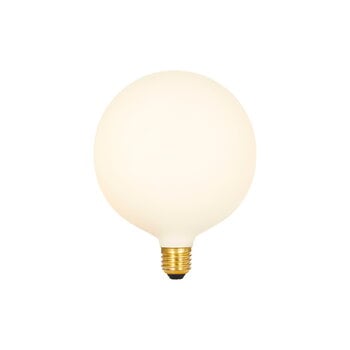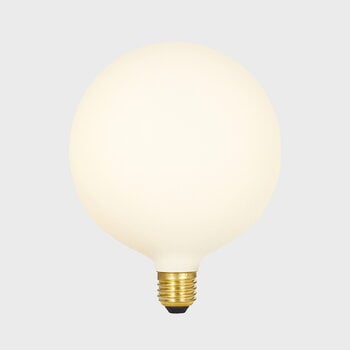Tala’s Sphere IV bulb combines the aesthetics of a classic incandescent bulb with modern LED technology. The dimmable globe bulb offers superb dimming performance with a flicker-free, smooth transition from 100 % to 0 %. Thanks to its Dim to Warm technology, the LED bulb has an effect similar to old halogen bulbs: the more you dim, the warmer the light becomes. The light bulb is therefore very versatile, offering bright or ambient lighting as need be.
The matte white Sphere IV is the largest bulb in Tala's Sphere range with a diameter of 15 cm. The base is E27, so the LED globe bulb fits a variety of light fixtures – just make sure to factor in the G150-shaped bulb's deliberately exaggerated size.









